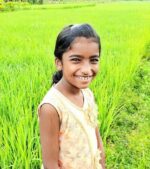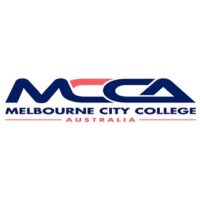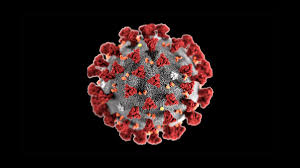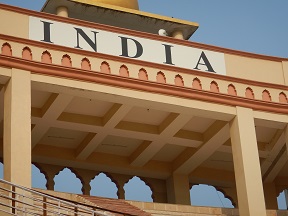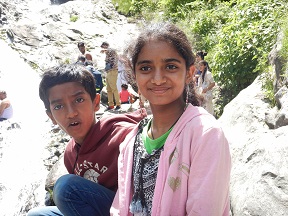Utter lack of any concern for their student by her own teachers, lack of any urgency or medicines to support in treating a critically ill patient by the medical professionals, took the valuable life of a ten-year-old child in Kerala’s Wayanad district on the evening of the 20th November.
In my view, we can look at this tragic incident in two ways:
The first view is whether Kerala which is a model even for the world for its hundred percentage literacy and leading social index parameters across the country is a place where a girl might die of snakebite in her school.
The second view is, let us say, for the sake of the argument that in spite of any greatness in Kerala’s system, these things might still happen. In that case what followed after the child complained of a snakebite in the class around three in the evening was appalling. The teacher whom the child and her friends complained to about a suspected snakebite from a hole in the classroom, close to where Shahla sat, refused to take the child immediately to the hospital and even refused to follow the repeated requests of another teacher to do so.
We are discussing what happened in a big school with large number of students. Apparently, the insensitive teaching professionals called her father after some time and waited for him to come and take her to the nearest hospital.
The place where parents send their children trusting that the teachers will be their guardian while at school cared little for a small girl in utter distress.
Precious time lost due to indifferent teaching staff:
It is not clear how rest of the teaching staff responded or acted after learning about the incident in this school in Wayanad called Government Sarvajan School, a Higher Secondary School in Wayanad’s Sulthan Bathery. Imagine, this is a higher secondary school where more than thousand students are supposed to be studying with proportionate number of teaching staff on the ground.
After the snakebite incident, close to thirty minutes were lost because the teachers who are supposed to be her guardians at the school didn’t show the urgency to immediately seek medical help. Her father was called and after precious time lost, she was taken to a hospital by the father himself. Subsequently four hospitals in the area have either refused her Antivenom treatment or explained that either they do not have the Antivenom in stock, or that they do not have the facility for after care as Antivenom is likely to create severe reactions.
Snakebite and lack of timely medical care takes life of schoolgirl in Kerala’s Wayanad – Youtube Video:
She breaths her last approximately three hours later:
At last a private hospital where she was admitted, administered Antivenom while putting her on a ventilator. This is where she breathed her last approximately three hours after the snakebite.
It breaks my heart to know the state of affairs in my state is in such state while the current government came to power claiming to correct everything.
In the TV debate, an expert was explaining that 11,000 deaths happening in India in a year from snakebites. That is the background in which a whole district and some of its major hospitals are stating that they have either no stock of Antivenom or they are incapable of administering it on a short notice.
Our celebrated Kerala Model, Apathetic system still keeps raising its head.
Shehala died due to our apathy, it is very apparent that we are far away from our so-called Kerala model of development (Please refer the relevant pages below).
https://en.wikipedia.org/wiki/Kerala_model
‘Kerala, Chandigarh top govt think tank NITI’s school education quality index’
She would have been certainly saved if she reached early for treatment to the nearest major hospital in Calicut (Medical College Calicut). But this hospital was at least two hours’ drive away from the hill district of Wayanad.
The Google map picture indicating the locations can be seen below:
Sulthan Bathery to Kozhikode route – Indicating the locations involved in the incident with distance can be seen below. Shehla never managed to reach the Calicut (Kozhikode) medical College which would have most certainly saved her life.

After this girl student’s tragic death, we can only talk about what can be done in the future. There is much to be done including first dismissing whoever is responsible for her death.
The education and health ministries need to put their act together and ensure that incidents such as this one resulting in the precious loss of a human life must never be repeated.
The doctor’s argument:
https://www.youtube.com/watch?v=pB8YHhk6Reg
Doctor Jisa Mariyam Joy who first treated Shahla has given the above interview (In Malayalam language) in which she is claiming that she was helpless under the circumstances.
Later we also came to see the DMO (district medical officer) claiming that the doctor was not entirely right. We do not know the facts on the ground. Someone is lying or telling half-truth. I would like to think that doctor didn’t have the necessary support system from the available team or the hospital itself which is not very uncommon in our state.
The news of the incident in major media outlets:
My View on what should be done:
- Schools must be brought under strict protocol with accountability for caring for its students.
- Those who are responsible for School maintenance must be held accountable for negligence such as in this case leaving a hole in the classroom itself that could accommodate a poisonous snake. Proper toilet facilities are another rarity in our Government schools.
- Hospitals response need serious review and strict action in case of negligence not only by the doctors but by the systems that may not ensure stock of life saving medications.
- At least one or two hospitals in a district must be always manned by two or three doctors so that a collective decision on the course of treatment can be immediately taken.
- Hospital equipment maintenance and supply of accessories must be ensured.
- Major regional centers such as Calicut, Kochi, and Thiruvananthapuram in Kerala should have standby helicopter facilities to serve in cases like medical emergencies and other such incidents. Helicopters could be paid for by the government or the private parties or partially funded by the government depending on the cases.
- Yearly inspections by the PWD (Public Works Department) is a norm for the educational institutions in the state. What happened to these inspections in the case of this school and how such gross failures in building safety norms have been missed by the responsible authorities must be examined.
- Feeling of responsibility and compassion is inborn or self-taught. In this case, both were missing especially on the side of the teaching staff. Provided such attributes are present, a training in first aid and a protocol in dealing with medical emergencies will help them take the right steps in emergency response.
Shahla’s tragic death should be an eye opener to the teaching community, health care professionals, and policy forming bodies.

